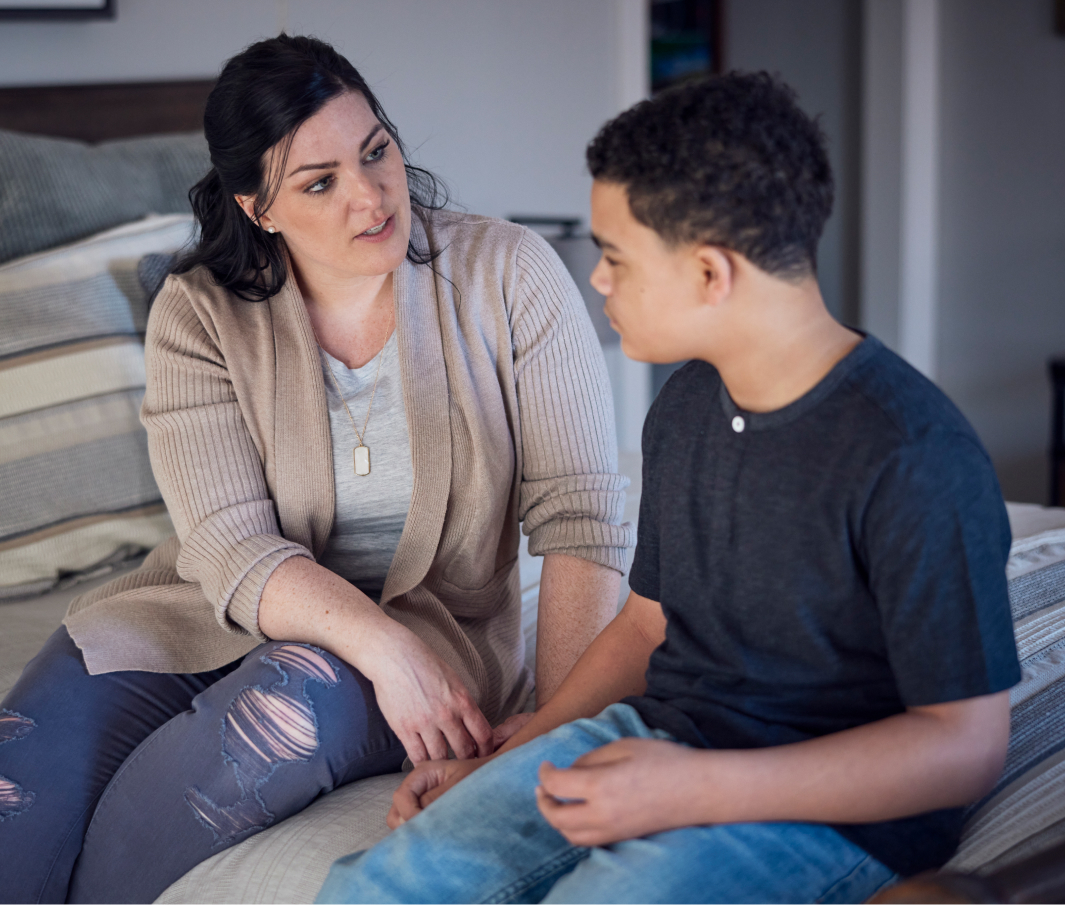How to have a conversation about gambling
Talking with your youth can model healthy ways of thinking, so that being exposed to gambling doesn’t lead to problem gambling.
Set the tone.
Set the tone.
Try to avoid challenges such as "I bet you can't make it down the street in under 30 seconds," which can normalize gambling behavior. Instead, encourage your child to enjoy activities that are often associated with wagers, such as card games, without actually placing bets.
State the facts.
State the facts.
Youth can overestimate the likelihood of winning a bet or a game. Level-setting those odds can help reduce the appeal of gambling. For instance, you can compare the odds of winning the Powerball lottery (1 in 292 million) to the odds of being struck by lightning (1 in 3,000).
Flip the script.
Flip the script.
Remind your child that gambling rarely results in winning. Allow them to consider what they can do with money they save by not gambling.
Explain the science.
Explain the science.
Talk with your child about the dangers of gambling as you would talk to them about the risks of drugs and alcohol. Explain how their underdeveloped brains aren't yet ready to make fully-informed decisions and are still susceptible to addiction's most harmful effects.
Promote healthy activities.
Promote healthy activities.
As youth get older, they might be better able to identify when gambling is just for fun versus when it becomes a problem. Until then, make sure family fun activities focus on experiences other than betting.
Be in the know.
Be in the know.
Be aware of the games and apps your child uses. Identify those that mimic gambling behavior. Ask questions and gauge your child’s understanding of their own relationship with gambling.
Conversation starters
Teachable moments
Gambling-related games: If you notice your child playing any gambling-related apps or games, speak up and start a conversation about the risks.
Spending habits: If your child asks for money, encourage healthy spending. Talk with your child about how they plan to spend money they have from after-school jobs or allowance.
Friendly dares: If you hear your child making a friendly dare, remind them that dares or bets with friends can encourage unhealthy gambling behaviors.



How can I model smart decision-making?
Ditch the tickets
Since children often mirror what their parents do, consider skipping that next lottery ticket or weekend poker game. And remember that lottery tickets aren’t appropriate as gifts for people under 18.
Avoid fantasy sports
Some youth try fantasy sports betting after seeing their parents or elders participate in work or neighborhood leagues.
Give friendly reminders
If someone makes a friendly bet or dare in front of your child, remind them that bets around sports or events can lead youth to problem gambling.
Set boundaries
Establish clear boundaries around screen time. This will decrease opportunities for online gambling and exposure to gambling ads.